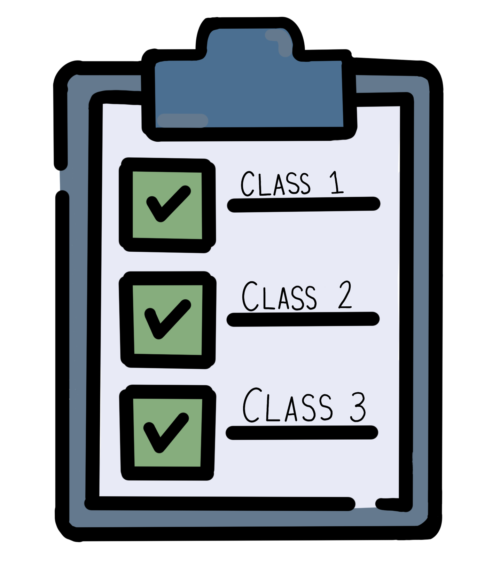I vividly remember my first time enrolling in college courses.
It was the week before classes started—the week before my first semester of college—and I had no idea what I wanted to concentrate in. Dreams of Psychology, English, History, and Government all danced around in my head as I excitedly clicked through course reports and added various classes to my Crimson Cart.
It’s perfectly normal to come into college, especially a liberal arts institution like Harvard, having little knowledge of what you’re looking to study. I would even argue that keeping an open mind as you enter your first year is healthy; it’s good to try new subjects and get out of your comfort zone. I never would have piqued an interest in Biology if I hadn’t impulsively taken Life and Physical Sciences last semester. But just because we are not required to declare our concentrations until sophomore fall, doesn’t mean we should wait until then to have a good sense of our intended major, nor that we should put immense career pressure on our decisions. Moreover, there are still opportunities to branch out and explore while maintaining an academic focus area, and carefully choosing a concentration early can help you efficiently move through your four years.
There are logistical advantages to deciding on a concentration early. A lot of the stressful course decision-making dissolves once you decide on a major. Instead of rifling through various departments’ intro courses or blazing through Gen Eds, you’ll have a solid sense of which classes need to be taken and when.
With a clear sense of your concentration, you can create a comprehensive three or three-and-a-half-year plan allowing for flexibility in junior and senior year, when you may be studying for postgraduate exams or applying for jobs and schools. Take independent studies, a personalized project tailored to your area of interest, typically done during junior or senior year, for example. Students who complete independent studies can benefit from one-on-one instruction, the opportunity to get involved in research, and the chance to show future employers the ability to organize and execute an advanced project. Projects like these may be trickier to fit into your schedule if you’re racing to complete concentration requirements close to graduation.
But beyond the practical benefits of choosing a concentration early is the mental benefit. Knowing which courses you have to complete and having a clear four-year plan may ease overall academic stress. Furthermore, having little direction in terms of coursework is likely only to exacerbate stress levels. A study published by the National Library of Medicine demonstrated a clear correlation between “worse academic stress and poor mental well-being.”
All of this is easier said than done. Choosing a concentration seems like a big life decision that can determine the course of your career. But the truth is, college majors actually aren’t particularly determinate of career outcomes. Statistically, only 27% of college graduates work in fields related to their concentration. While it’s true that some industries are higher paying than others, a student’s ability to enter those fields is more determined by soft skills as opposed to having a “relevant” major, according to an article published by Forbes. In other words, choosing a concentration may not be as much of a major decision (pun intended) as you might think.
Take some of Harvard’s famous alumni. Actress and filmmaker Rashida Jones ’97 studied Comparative Religion but went on to join the entertainment industry. Yo-Yo Ma ’76, a world-renowned cellist, concentrated in Anthropology. Though both achieved immeasurable success, neither Jones’ nor Ma’s undergraduate concentrations were necessarily predictive of their respective careers.
Besides, a student’s choice of college is likely more important than their choice of major. Research done in several states has revealed that across the board, regardless of major, graduates from more selective universities tend to make more money, on average, than those from second-tier schools. So picking Harvard over a less selective college may already have been a more determinate career choice than deciding on a concentration.
In a few weeks, we’ll return to Q-Guide Reports and Crimson Carts to choose courses for next fall. This time, I won’t be spending hours pouring over course descriptions and impulsively enrolling in subjects I know nothing about. Instead, I’ll spend some time selecting classes of interest from a specific concentration, maybe finding a Gen Ed or two. It won’t be any less exciting—we only take on average thirty-two courses during our time here, so choosing classes will always be a big deal. Rather, I will go into course selection with a bit more peace of mind, having a better sense of where I am headed academically.
There’s something thrilling about coming into college and taking classes outside of your comfort zone. Going into freshman year with an open, unattached mind is meant to be exhilarating; many of us chose a liberal arts institution for the chance to explore many fields of study before settling down.
Despite this, choosing a concentration doesn’t have to take the full year and a half Harvard allows, nor is it an end to the adrenaline rush of your first course selection. Instead, you are able to explore in depth a singular field, gain a meaningful understanding of it, and pursue the aspects you’re passionate about—which I would argue is just as exhilarating and intellectually stimulating. So I encourage my fellow freshmen to think critically about the subjects that pique their interest and run with it. It might blossom into a career, or it may just be a worthwhile exploration of academic interest. Either way, you’ll undoubtedly benefit from having a clearer picture of your academic path for the next three years.
Emmie Palfrey ’27 (epalfrey@college.harvard.edu) wrote this article while planning out her courses for next fall.

